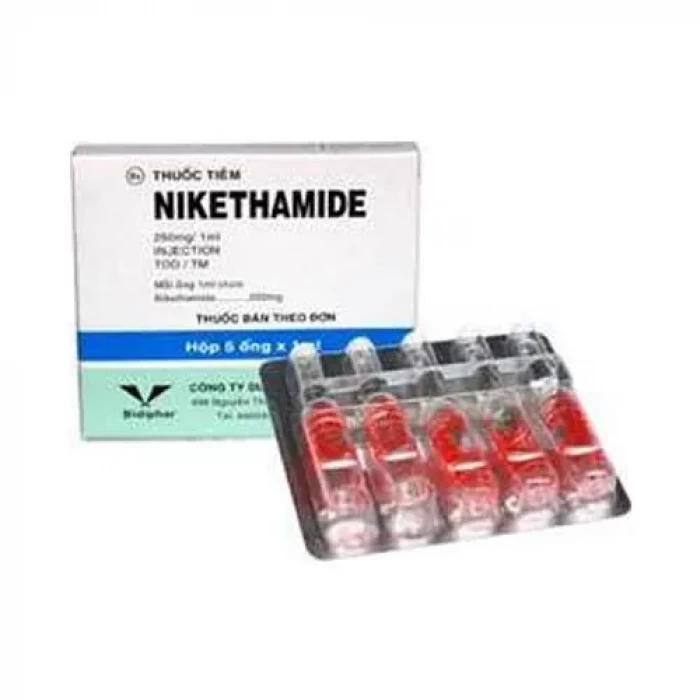
✔ 100% Authentic Product
👁️ Currently Viewing 5943
Nikethamide 250 mg/ml Injection
Nikethamide 250 mg/ml Injection is used for the treatment, control, prevention, and improvement of the following diseases, conditions, and symptoms: Central nervous system stimulant, Barbiturate overdose.
📄Prescription Required
Discount
Price: ৳ 47
MRP:
৳
50
6%
Off
✅ Description:
Nikethamide Injection is a respiratory stimulant primarily used to address respiratory depression caused by conditions like chronic bronchitis. It can also be employed to counteract overdoses of tranquilizers, sedatives, and barbiturates before procedures like endotracheal intubation and lung expansion. Additionally, it serves as a central stimulant and aids in managing hypotensive disorders.
Commonly known as nicotinic acid diethylamide, Nikethamide functions similarly to doxapram. However, the dosage required for respiratory stimulation is lower than that which induces convulsions in conscious individuals. In regions like South America and Europe, Nikethamide is available in lozenge form as an over-the-counter drug for short-term use to enhance endurance in high-altitude environments. Moreover, it exerts a direct influence on the heart by promoting coronary flow in cases of myocardial infarction.
The mechanism of action of Nikethamide involves direct interaction with the respiratory centers in the brain. It is typically administered intravenously by healthcare professionals in hospital or clinic settings. Each milliliter of solution contains 250 mg of nikethamide.
✔️ Uses of Nikethamide 250 mg/ml
Energy malnutrition, Central respiratory depression, Tranquilizer overdoses
✔️ How does Nikethamide 250 mg/ml work?
Nikethamide is a stimulant that mainly affects the respiratory cycle. Direct stimulation of the respiratory center. Reflex stimulation of the respiratory center by stimulating the chemoceptor of the carotid body.
✔️ Side Effects of Nikethamide 250 mg/ml Injection:
The following is a list of possible side-effects that may occur from all constituting ingredients of Nikethamide 250 mg/ml Injection: Skin irritation, Eye irritation, and Respiratory irritation.
✔️ Pharmacology:
Nikethamide 250 mg/ml was formerly used as a respiratory stimulant, but its use for this indication is no longer recommended as the effective doses are close to those causing toxic effects, especially convulsions.
✔️ Dosage & Administration of Nikethamide 250 mg/ml:
1500 mg as a single dose. Frequency: as recommended.
✔️ Interaction of Nikethamide 250 mg/ml:
Additive pressor effects with sympathomimetics or MAOIs. Increased risk of cardiac arrhythmias with some anesthetics (halothane, enflurane, isoflurane). May mask the effects of neuromuscular blockers. Increased risk of convulsions with bupropion.
✔️ Contraindications:
Porphyria, epilepsy, other convulsive disorders, cerebral edema, cerebrovascular accident, head injury, acute severe asthma, physical obstruction of the airway, severe hypertension, ischemic heart disease, hyperthyroidism, and phaeochromocytoma.
✔️ Precautions & Warnings:
Less severe degrees of hypertension or impaired cardiac reserve; liver dysfunction.
✔️
Store at a temperature not exceeding 30ºC in a dry place. Protect from light.
⚠️Disclaimer:
At ePharma, we’re committed to providing accurate and accessible health information. However, all content is intended for informational purposes only and should not replace medical advice from a qualified physician. Please consult your healthcare provider for personalized guidance. We aim to support, not substitute, the doctor-patient relationship.






